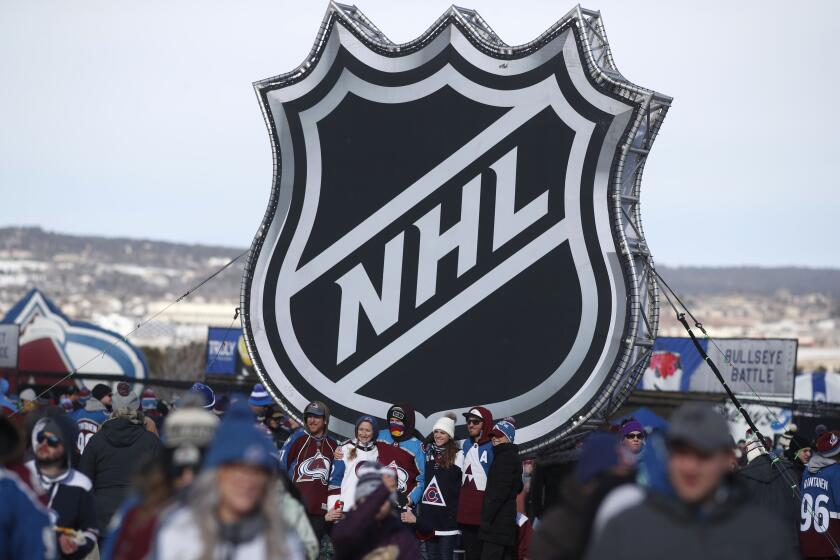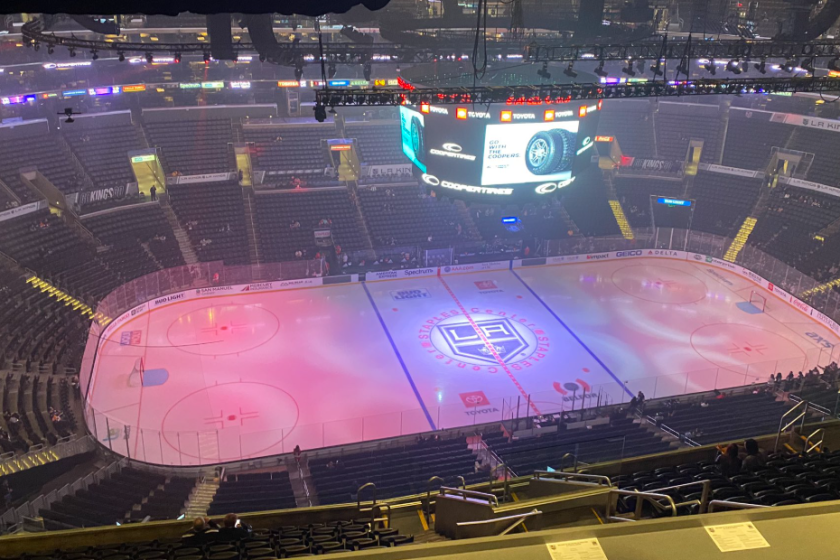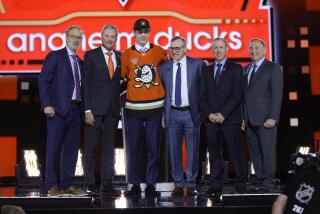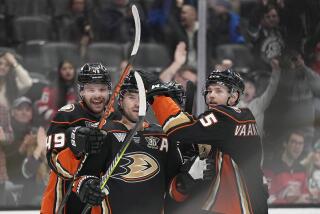NHL and NHLPA vote to accept CBA and return to play protocols
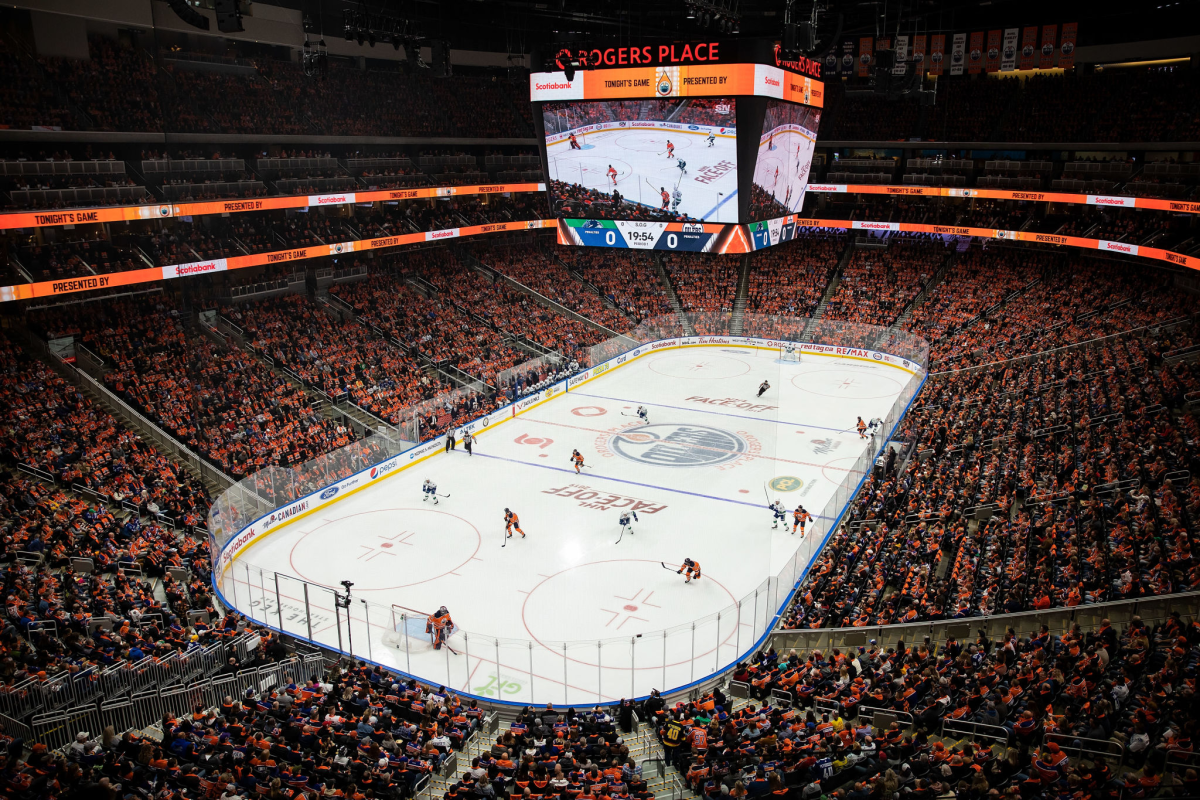
- Share via
The NHL and the NHL Players’ Assn. on Friday ratified the terms of their Return to Play plan and also approved a Memorandum of Understanding to extend their collective bargaining agreement though the 2025-26 season, decisions that clear the way for training camps to open next week and for the season to resume on Aug. 1 under an atmosphere of cooperation and labor peace.
The NHL paused its season on March 12 because of the COVID-19 pandemic. Since then, the league and the union have negotiated elaborate protocols designed to safeguard the health of players, coaches, and team staffers while permitting teams to complete the season and award the Stanley Cup.
The revamped playoffs will feature 24 teams — 12 from the Eastern Conference and 12 from the Western — and will place those teams in protective bubbles in Toronto and Edmonton, respectively. The top four teams in each conference will play round-robin games for seeding; the other teams in each conference will meet in a best-of-five qualifying round. All rounds after that will be best-of-seven. No fans will be allowed into the arenas.
The conference finals and Stanley Cup Final will be played in Edmonton’s Rogers Place. The Final could end as late as Oct. 4, and the start to the 2020-21 season will be pushed until December.
Players who chose to opt out of competition for health reasons can do so by Monday. Camps will run until July 26, when teams will travel to their assigned hub. League executives have said that isolated positive tests for COVID-19 during training camp or competition would not automatically trigger a suspension of play, but an outbreak would lead them to consult medical experts and local health authorities for advice.
The terms of the collective bargaining agreement address the revenue losses the NHL has sustained because of the pandemic. The salary cap will remain at $81.5 million next season, and players will defer 10 percent of their salaries. They will be repaid when the league’s revenues revive.
The NHL said 23 players tested positive for COVID-19 since players were allowed to participate in voluntary workouts at teams’ training facilities.
A noteworthy element in the collective bargaining agreement is a commitment from the NHL and the NHLPA to allow players to represent their homelands in the 2022 and 2026 Winter Olympics if they can reach an agreement with the International Ice Hockey Federation and/or the International Olympic Committee.
NHL players competed in the 1998, 2002, 2006, 2010, and 2014 Winter Games but didn’t participate in the 2018 Games in Pyeongchang, South Korea because the league claimed it would gain no economic benefits from their Olympic participation. The IIHF and IOC have indicated their willingness to be flexible on thorny issues such as granting the NHL marketing rights to players’ Olympic activity and in covering expenses for players’ travel and insurance.
Also, as previously outlined, players’ payment to escrow will be capped at 20 percent next season and would decline according to future levels of hockey-related revenues. As far as scheduling, the league and the union agreed to continue discussing simplified travel by scheduling back-to-back road games in the same city when feasible.
In a press release issued by the league and the union, NHL commissioner Gary Bettman called the agreements significant and described them as “the foundation for the continued long-term growth of our League.” Bettman added, “I thank NHLPA Executive Director Don Fehr and Special Assistant to the Executive Director Mathieu Schneider, the more than 700 NHL Players — particularly those who worked on our Return to Play Committee — and the NHL’s Board of Governors for coming together under extraordinary circumstances for the good of our game. While we have all worked very hard to try to address the risks of COVID-19, we know that health and safety are and will continue to be our priorities. We know that all of our fans are excited about our return to the ice next month and that has been our goal since we paused our season on March 12.”
Bettman, Fehr, NHL deputy commissioner Bill Daly and NHLPA special assistant to the executive director Mathieu Schneider are scheduled to take part in a media availability via Zoom on Saturday. It will be streamed live in nhl.com and the league’s Facebook page.
Fehr thanked the members of the negotiating and Return to Play committees and the union’s executive board.
“This agreement is a meaningful step forward for the players and owners, and for our game, in a difficult and uncertain time,” Fehr said. “I also thank Gary Bettman, Bill Daly and the NHL staff for their efforts towards finding solutions to the problems we face. Most importantly, we are pleased to be able to bring NHL hockey back to the fans. We look forward to the NHL’s continued growth here in North America and on the world stage.”
The Stanley Cup Final is tentatively scheduled to begin on Sept. 22, with a last possible date of Oct. 4.
Los Angeles will not be chosen as a hub city for the revamped Stanley Cup playoffs, the NHL informed the Kings on Wednesday.
A schedule is still being completed for TV coverage of the round-robin and qualifying games, a process complicated by the necessity of playing multiple games each day. Start times for qualifying round games in Toronto will be at 9 a.m., 1 p.m., and 5 p.m. Pacific time. Start times for qualifying round games in Edmonton will be 11 a.m., 3 p.m., and 7:30 p.m. Pacific time but might fluctuate depending on the end of previous games.
For statistical purposes, games played in the round-robin phase (which will start on Aug. 2) and the qualifying phase (which will start on Aug. 1) will be counted toward postseason totals.
Phase 2 of the draft lottery will take place after the qualifying games and before the first round begins on Aug. 10.
That phase became necessary when one of the eight qualifying teams won the right to choose first overall. The eight teams that lose in the qualifying round will be eligible for Phase 2. The draft has been scheduled for Oct. 9-10.
More to Read
Go beyond the scoreboard
Get the latest on L.A.'s teams in the daily Sports Report newsletter.
You may occasionally receive promotional content from the Los Angeles Times.

